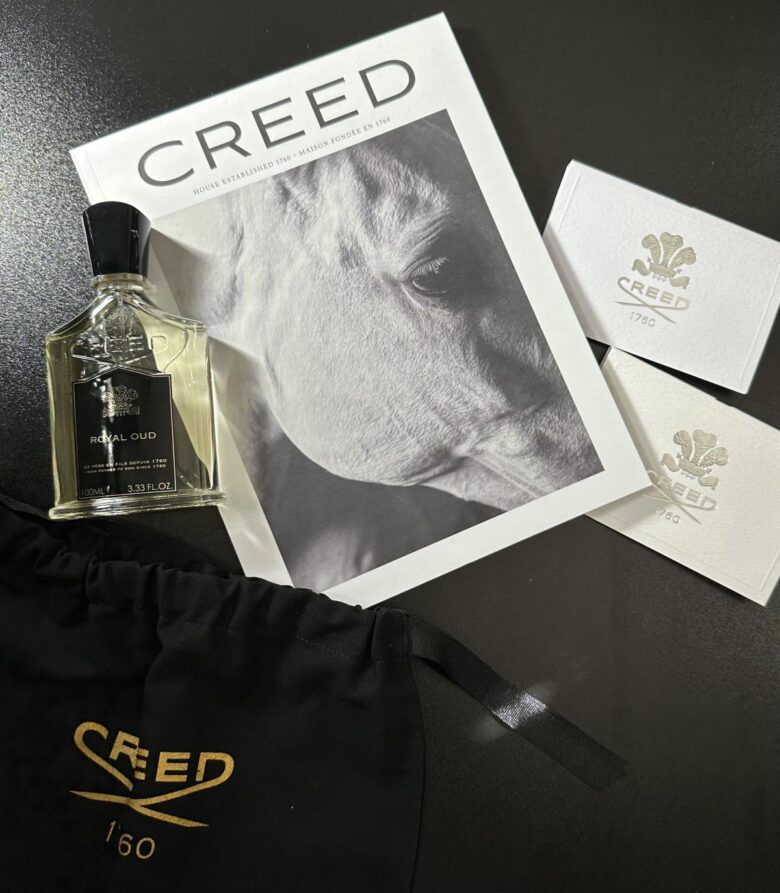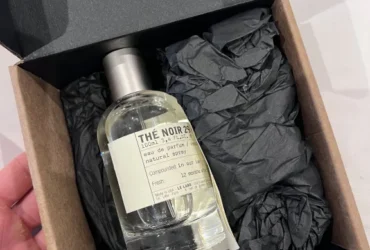The Creed Fragrances Brand Sold to Kering. Since approximately 2014, we have witnessed the decline of the original independent fragrance brands that solidified the concept of niche perfumes for the modern consumer. Creed Fragrances, a dominant force since the 1990s, continued to thrive, and their fragrance Aventus, with its prominent pineapple note, became widely recognized in the perfume world after 2010. Other Creed fragrances like Royal Oud, Millesime, Love in Black, Fleurs de Bulgarie, Viking, and a few more have also gained significant popularity.
For those of us who are skeptics, the niche fragrance industry has often been seen as a strategic tool for companies to expand their business and eventually sell it off to the highest bidder. Byredo, for instance, followed this path. Other brands were acquired after developing intriguing concepts or somewhat questionable lineages.
The acquisitions of Editions de Parfums Frederic Malle and Le Labo by the Lauder Group were succeeded by the purchase of the long-standing British house Penhaligon’s (established in 1870) and the French avant-garde pioneer L’Artisan Parfumeur (founded by Jean Laporte in the late 1970s) by the Spanish group Puig. Lauder, through its dual-phase collaboration with Tom Ford, not only acquired his fragrance division but also his fashion and accessories brand. Now, Creed Fragrances has followed a similar trajectory by being acquired by Kering.
But let’s start from the beginning.
The gradual integration of certain established niche brands into the corporate mainstream poses a potential (or rather, highly likely) risk of diminishing innovation and creativity. As a result, we are now witnessing the emergence of niche 2.0, characterized by newer artisanal and independent brands.
Creed, a family-owned business with a controversial history in the fragrance industry (I have explored the inconsistencies surrounding the Creed fragrance brand in a previous article), is a Paris-based perfume house renowned for its self-crafted narrative and penchant for dropping influential names. While it is possible to come across and acquire perfumes created by renowned houses like Guerlain, Chanel, Caron, and others through garage sales and collectors’ catalogs worldwide, finding early Creed fragrances prior to the ’70s has proven to be nearly impossible.
However, dedicated enthusiasts and connoisseurs, such as some of our members here at Fragrantica, have managed to uncover several mentions of the tailoring brand and its emblem. (We extend our gratitude for their diligent efforts!)
Pierre Bourdon, the perfumer behind some of Creed’s early successful creations, has been an invaluable source of information for Gabe Oppenheim in his book “The Ghost Perfumer,” particularly due to Bourdon’s retirement and his vast expertise and knowledge of the industry. It is worth noting that both Bourdon and Herault have played instrumental roles in the development of many fragrances for the brand. The insights shared by Bourdon, who was contacted through Jean-Claude Ellena, are truly captivating.
In 2020, after being under the tight management of the Creed family for decades, the Creed perfume house was acquired by BlackRock Long Term Private Capital and Javier Ferrán, a Spanish businessman and chairman of Diageo. Olivier Creed, at the time of the sale, expressed that Ferrán and BlackRock LTPC were the perfect partners for Creed due to their collaborative approach in working with companies and their focus on long-term growth. Olivier Creed also emphasized his intention to continue working with their dedicated staff, suppliers, and distributors, confident that they would continue to contribute to their ongoing success. Interestingly, BlackRock is recognized as one of the largest property management firms globally.
During this period, Aventus for Men emerged as the flagship fragrance that significantly contributed to the majority of their sales over the previous decade. (Aventus was initially launched in 2010.)
Creed has recently been acquired by a prominent luxury conglomerate, Kering, which oversees renowned fashion houses. Kering, a French multinational company specializing in luxury goods, boasts ownership of esteemed brands like Balenciaga, Bottega Veneta, Gucci, Alexander McQueen, and Yves Saint Laurent. Originally established as a timber trading company called Pinault S.A. in 1962 by François Pinault, Kering has now expanded its reach into the beauty industry with the acquisition of Creed.
With a specific focus on makeup for their luxury brands, particularly Gucci and Balenciaga, Kering had set its sights on venturing into the beauty sector. In this pursuit, Kering has successfully obtained full ownership of Creed, a prestigious fragrance brand previously controlled by BlackRock Long Term Private Capital Europe and chaired by Javier Ferrán. Notably, the acquisition was carried out entirely through a cash transaction, amounting to a staggering 2 billion USD.
Remarkably, this development occurs merely three years after BlackRock gained ownership of the Creed brand.
Consequently, Creed relinquishes its status as a niche enterprise, yet the brand’s allure and aura of luxury exclusivity will undoubtedly be preserved by its new proprietor. Creed has positioned itself as a renowned luxury brand with a rich historical background. Therefore, consumers are not only purchasing the product itself but also paying for the cachet, perceived history, and prestigious lineage associated with the brand.
This leads me to reflect on the acquisition of smaller brands by large luxury conglomerates.
To gain some perspective, Barneys was once synonymous with perfumes, offering a wide range of brands such as Comme des Garçons, Frederic Malle, Serge Lutens, Byredo, Maison Martin Margiela, Orto Parisi, Liquides Imaginaires, Tiziana Terenzi, Escentric Molecules, Arquiste. These brands were often difficult to find in physical stores, but Barneys made them accessible in New York, Boston, and San Francisco.
However, major corporations have lost much of their credibility in producing luxury goods comparable to, for example, fine wines. Some attempted to create “private collections” with initial success (e.g., Chanel, Hermes, Dior), but now the concept of a “private line” has become irrelevant and diluted. Niche fragrances initially emerged to cater to those seeking something exclusive and unique, setting themselves apart from mass-produced products. Yet, the commercialization of niche fragrances is eroding the original demand. As a result, consumers are increasingly seeking alternative options, only for those alternatives to eventually become mainstream and then necessitate the pursuit of new alternatives, eventually leading to bespoke offerings.
Unfortunately, the rising prices do not benefit consumers. In fact, niche fragrances have seen prices increase tenfold in the past decade, particularly after the mid-2000s boom. I am concerned about the decline of high-quality products, as we have witnessed a decrease in both mainstream and luxury quality.
The ethical concern arises from the fact that the acquisition of established brands for a significant sum was marketed as art. However, the distinction lies in the fact that art is not created solely for profit, to be commodified, recognized, acclaimed, and then sold at an exorbitant markup. Art is born out of an inherent necessity for the artist—it is an expression of their internal drive, not a predetermined business model. Brands often heavily relied on positioning themselves as art to persuade their audience, thus engaging in a fundamental deception. While acknowledging their marketing tactics might have preserved some integrity, only a few chose to do so.
New niche brands continue to emerge rapidly, and we can expect to witness more of this in the coming years. As for Creed, the actions of Kering, its new owner, remain uncertain. We will be here faithfully reporting any developments.









Leave a Reply